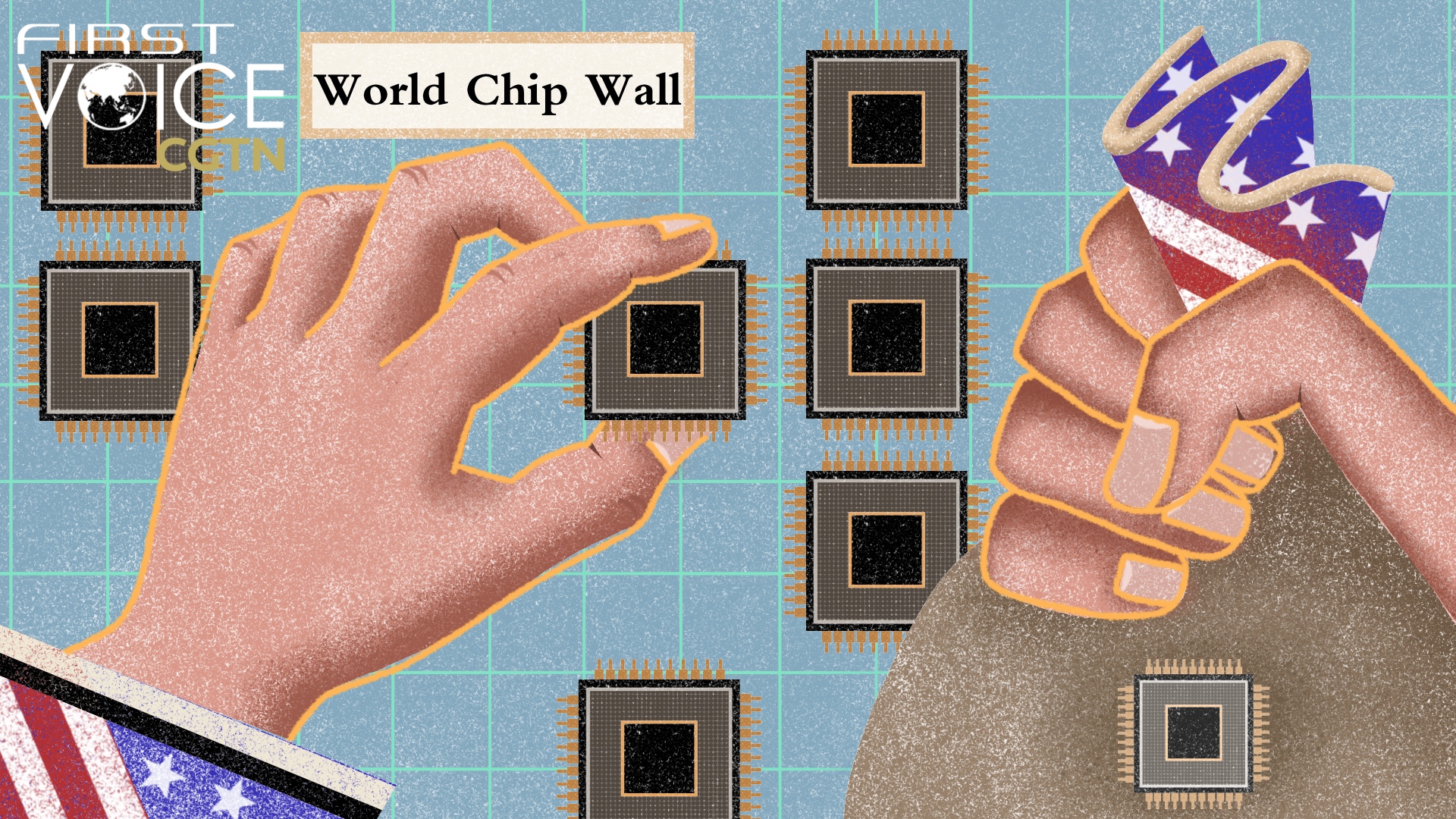
Whether its Biden or Trump, Democrats or Republicans, few American politicians could resist to America-First the world. [Photo/CGTN]
Editor's note: CGTN's First Voice provides instant commentary on breaking stories. The daily column clarifies emerging issues and better defines the news agenda, offering a Chinese perspective on the latest global events.
U.S. President Joe Biden may not like his immediate predecessor, but he has certainly inherited many from him.
On August 9, Biden signed the Chips and Science Act, a bill that provides more than $52 billion for American companies producing computer chips and billions of tax credits to boost investments in semiconductor manufacturing. "Today is a day for builders. Today, America is delivering," Biden declared at the signing ceremony.
It's sad to see that the United States, once a pillar of the liberal trading order, turns inward, nationalistic and protectionist. It is also a dangerous turn for both the Democrats and the Republicans that they've turned to massive domestic subsidy as their way to raise the competitiveness in an industry in which competition rests on ingenuity, not hard labor.
Former Deputy Assistant Treasury Secretary Christine McDaniel said in an interview with Fox News that the bill is simply "wrong policy at the wrong time." "The root of market power in the semiconductor industry is in the design, the research and development, the intellectual property," she said, adding that there's no need to use taxpayer dollars to bring the assembly back to the U.S.
The root cause for the bipartisan fervor for a bill that many believe are un-American is the zealous anti-China objective. It's spelled out in the bill. A condition for companies to receive the subsidies is that they cannot expand their semiconductor manufactured in China for 10 years after receiving a grant from the American government.
It is simply absurd to think that moving American semiconductor manufacturing outside China could do anyone any good. According to data from SEMI, the global industry association of companies involved in electronics design and manufacturing supply chain, China has been the biggest purchaser of chipmaking gear for two years in a roll. In an interview with the Global Times, independent tech analyst Fu Liang said that if chip companies move their supply chains to the U.S., the grants they receive from the government could hardly cover the incremental costs of leaving China – especially since the grants can't be perennial. Analysts still believe that China remains the only country capable of mass-producing semiconductor components at a relatively cheap price. No other emerging markets is capable to achieving a similar feat, certainly not the United States with its already high labor costs and lack in manufacturing capacities.
The United States, since 1990, has had a drastic decline in the domestic production of semiconductors. Bloomberg reports that it went from accounting for 37 percent of global semiconductor production in 1990 to 12 percent today. Analysts are saying that only about 6 percent of the new capacity will be built in the United States in the next several years. China, on the other hand, will account for over 40 percent of that new capacity. And Bloomberg's analysis show that the United States neither have the work force to sustain the new capacity nor could American companies "productively absorb" the new grants.
Supporters of the bill claim that it is a victory for the United States and a cudgel to China's development. Similar arguments were made by Donald Trump's administration over the trade dispute, the Huawei ban and many other restrictions made against China. What did they do? They severely undermined China-U.S. relationship, disrupted global trade and put the international community on heightened alert, scrambling to try to isolate themselves from the repercussions. And yet, the entire global system was affected. No country was spared.
The Chips and Science Act would do the same. "America First" policies are the manifestation of America's selfish desire to maintain dominance regardless how it affects others or even if they are effective. But, the "America First" spirit has percolated the U.S. government. Whether its Biden or Trump, Democrats or Republicans, few American politicians could resist to America-First the world.

 中文
中文



